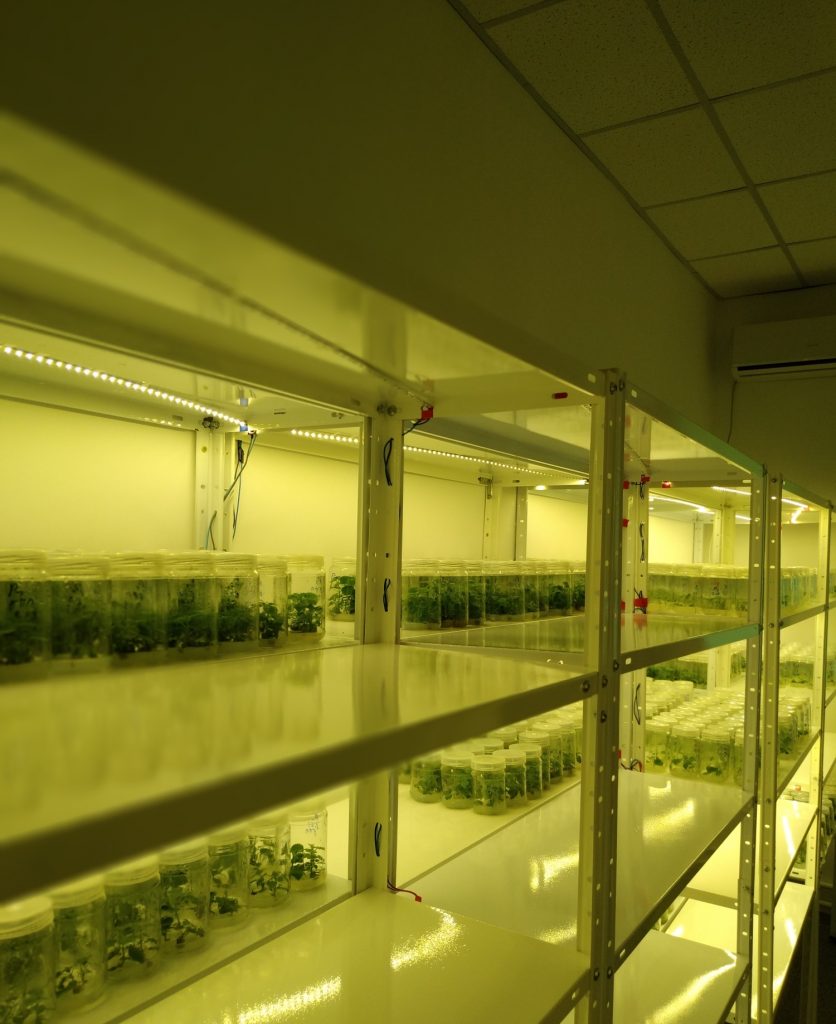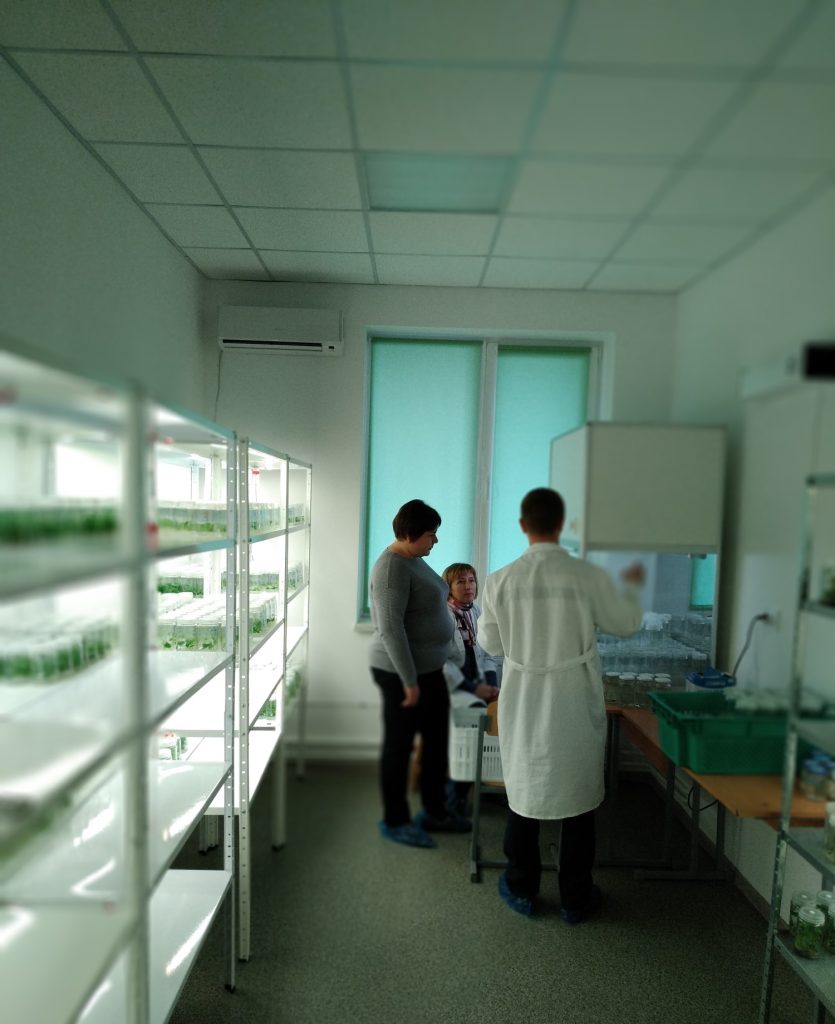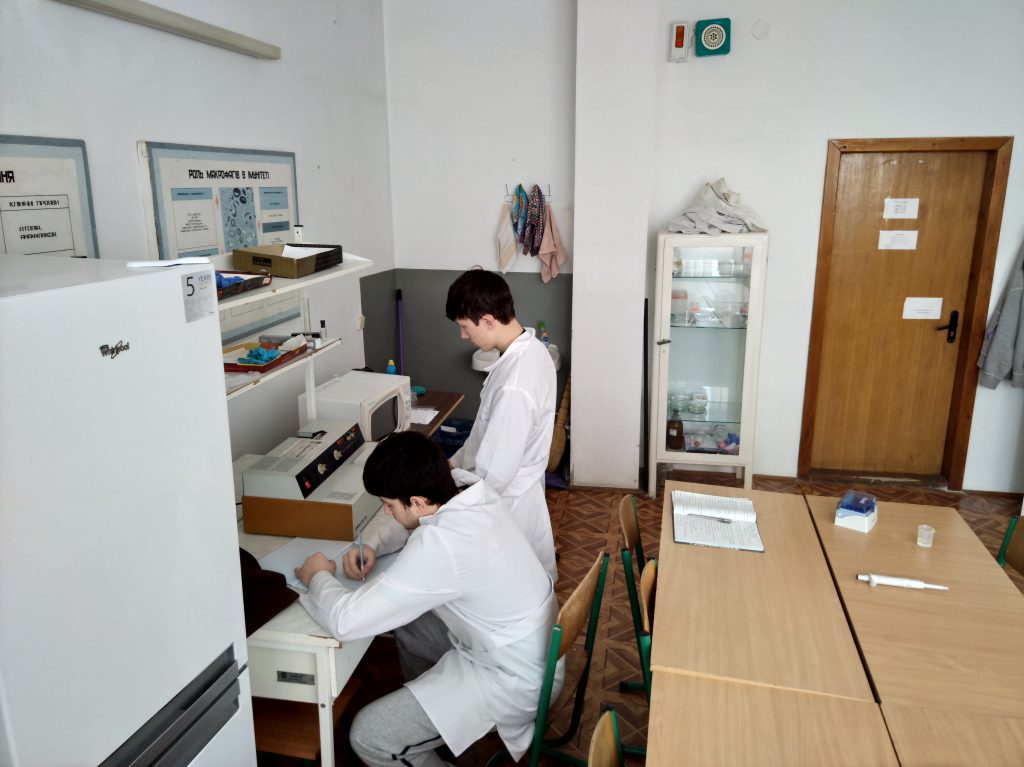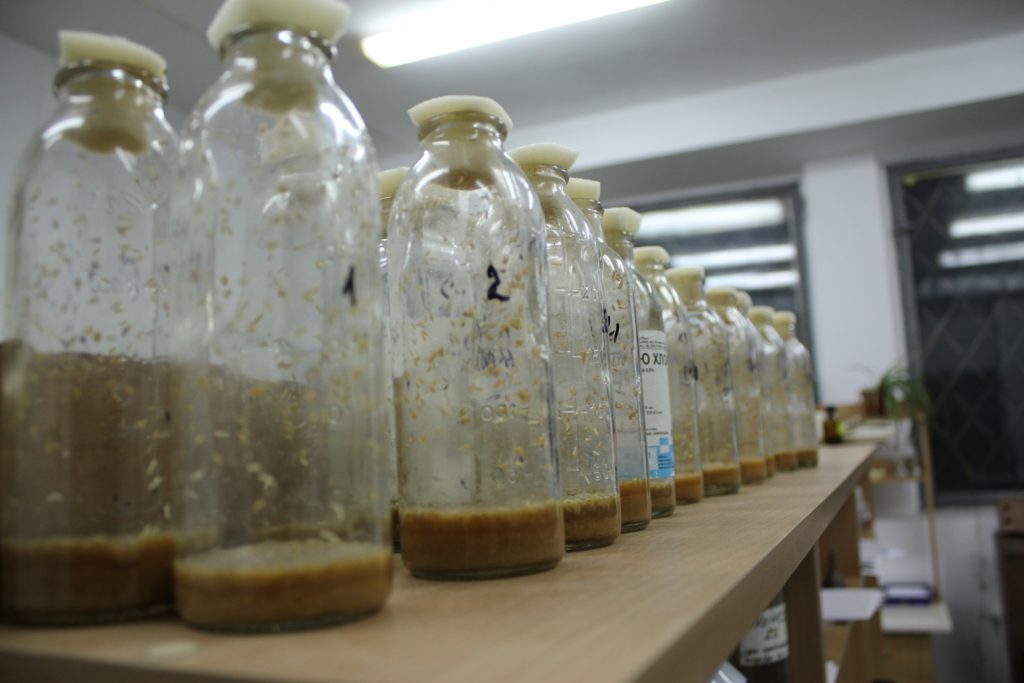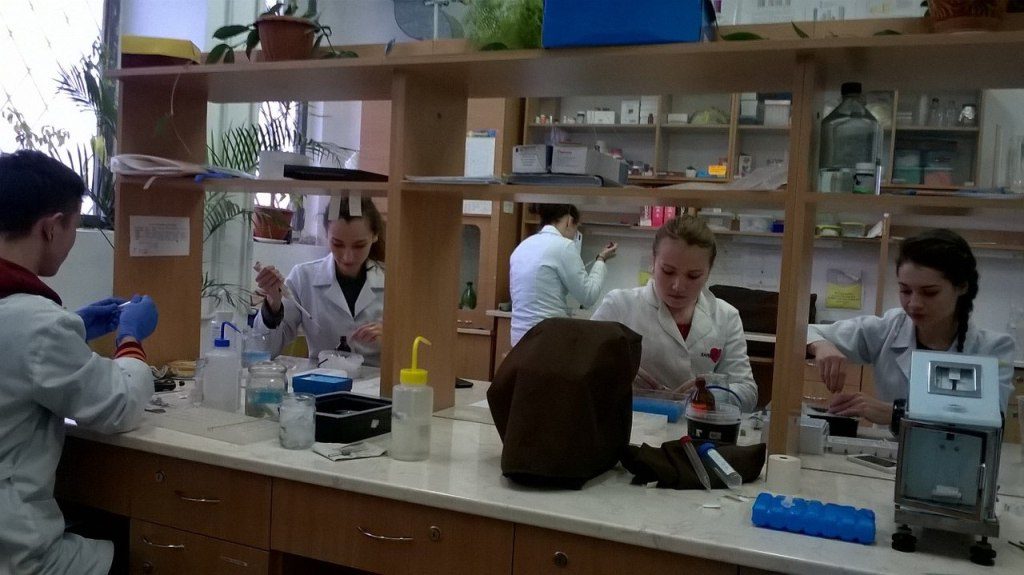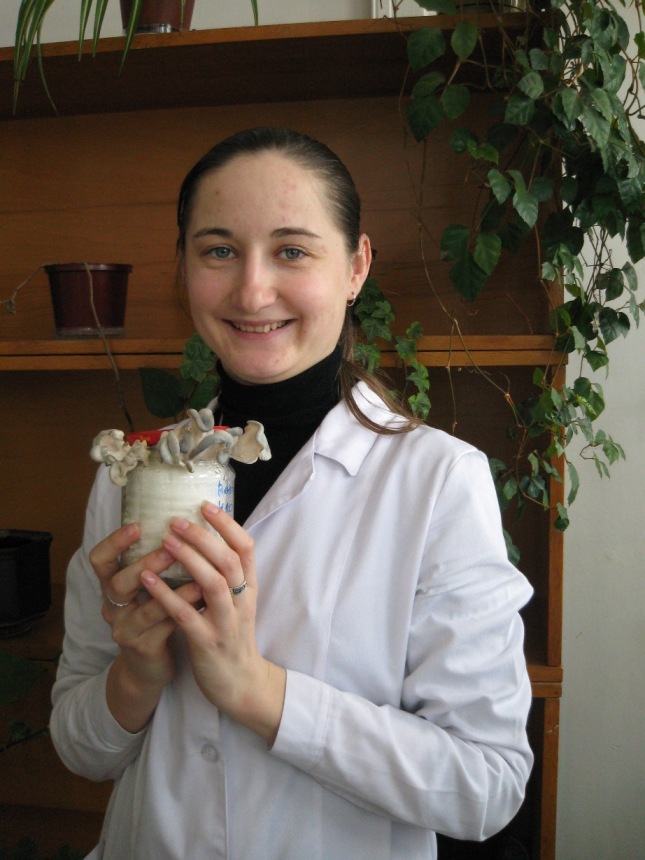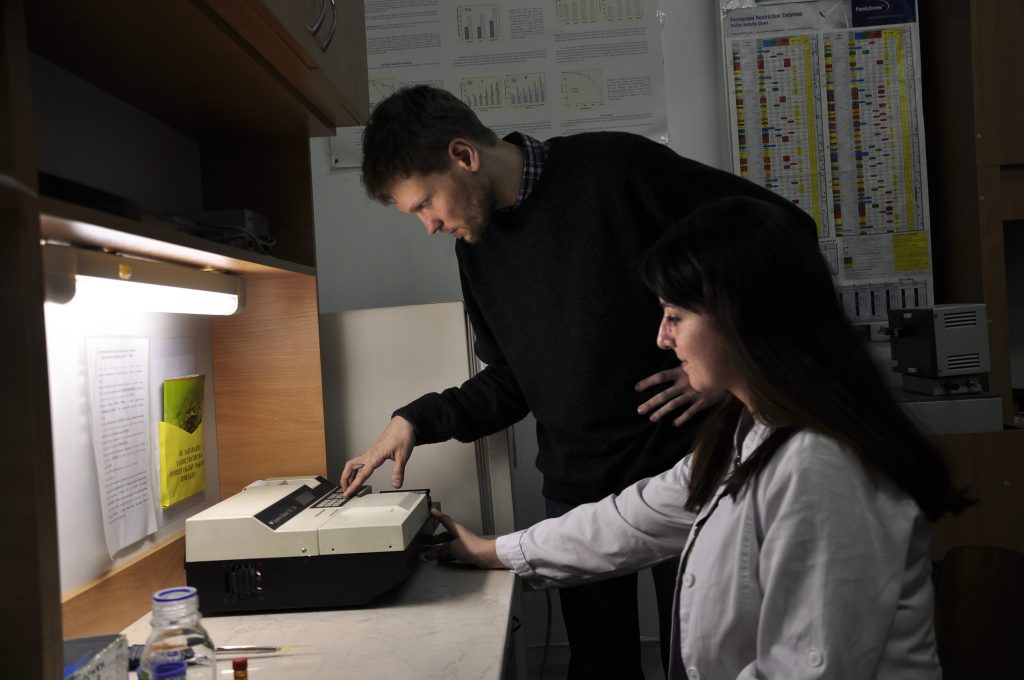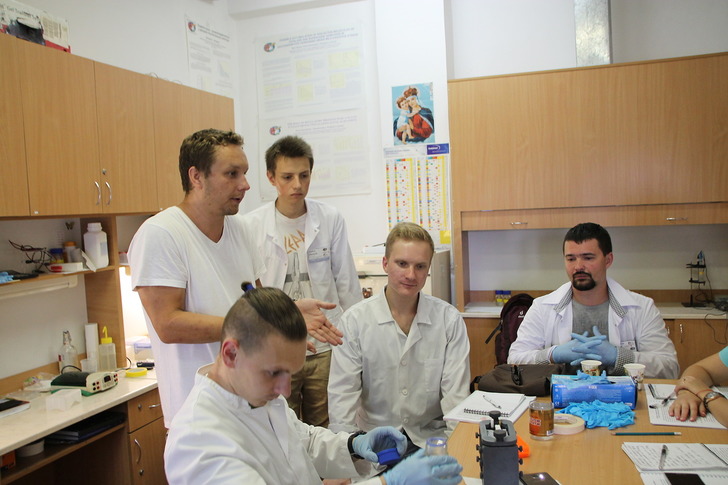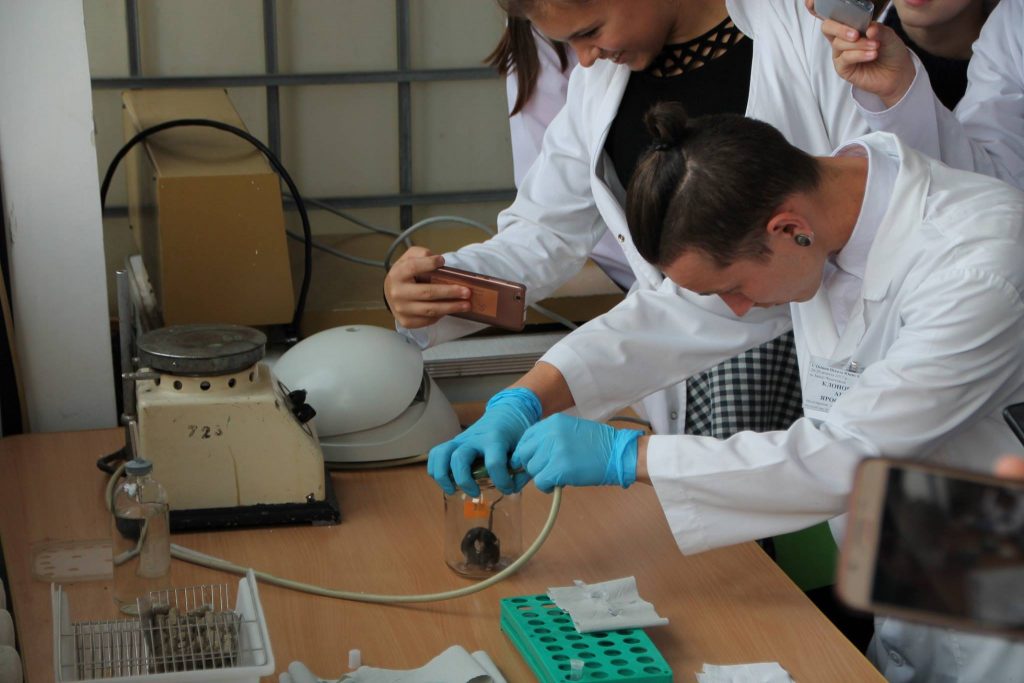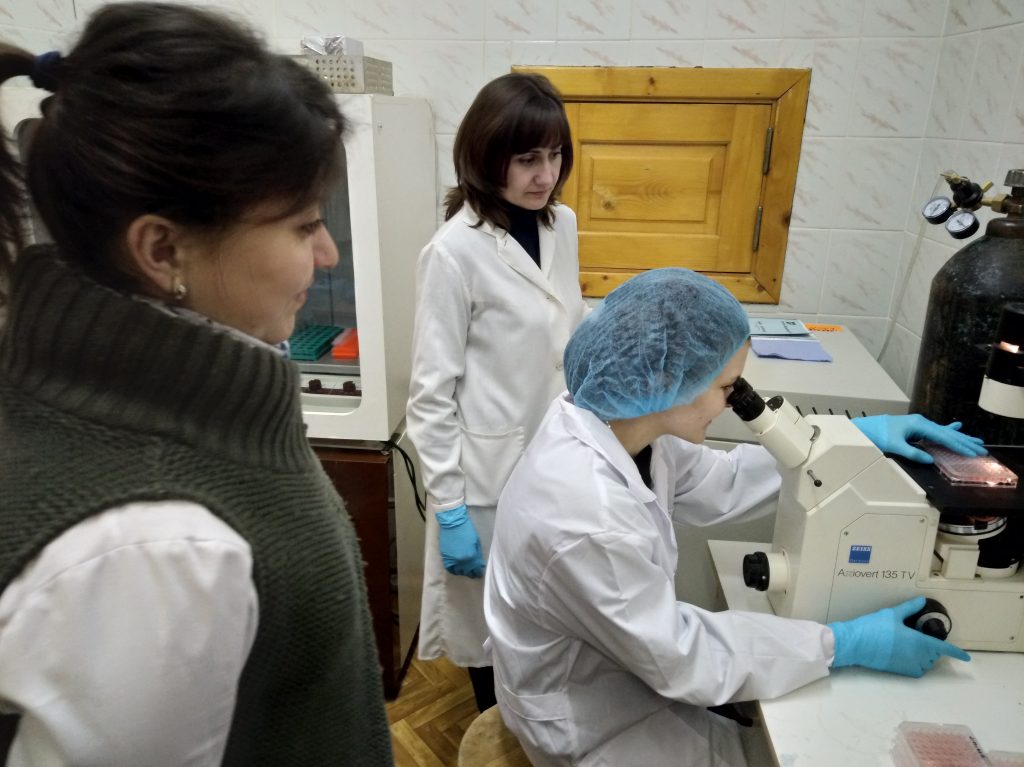Research at the Department of Biochemistry and Biotechnology is mainly focused on fundamental processes in biological systems. In particular, we study molecular mechanisms underlying metabolic disturbances and aging as well as mechanisms responsible for the ability of living organisms to “survive” upon different stress conditions. In addition, we investigate how to increase adaptive potential, to decline aging and to prevent the development of age-related diseases such as metabolic syndrome, obesity, diabetes, neurodegenerative diseases, etc. The benefficial effects of dietary/caloric restriction and natural dietary supplements are studied as the effective preventive approaches. Reseach is conducted on different groups of living organisms: bacteria, baker’s yeast, animal cell cultures, plants, fruit flies, daphnia, fish and mice.
А number of students of Prof. Volodymyr Lushchak, a well-known professional in the field of free radicals, are working at the Department. In view of this, free radical processes became the main research subject at the Department. A wide range of methods in microbiology, physiology, histology, physical chemistry, biochemistry and molecular biology are available for staff researchers, postgraduate and undergraduate students. Investigating aging and modeling adverse environmental conditions or certain metabolic disturbances, a comprehensive assessment of the orgamism’s status is carried out, namely there are determined:
- parameters of the functional state of organisms (behavior, growth, stress survival, lifespan, mortality, reproductive capacity, metabolic activity, etc.),
- indices of the intensity of free radical processes (levels of oxidatively damaged biomolecules, activity of antioxidant and associated enzymes, levels of high and low molecular mass antioxidants),
- indices of the intensity of non-enzymatic glycosylation and carbonyl stress (end products of glycosylation and carbonylation, activity of antiglycating enzymes);
- parameters of energy metabolism (mitochondrial respiration, content of important metabolites (glucose, glycogen, triacylglycerides, cholesterol, lactate, etc.);
- activity of enzymes involved of metabolism of amino acids, carbohydrates and lipids;
- morphological parameters (body and tissue mass, histological slides);
- hematological and biochemical parameters of blood and indicators of the immune status.
Specific research interests include:
- molecular mechanisms of organisms’ adaptation to environmental stresses;
- mechanisms of action of xenobiotics;
- regulation of gene expression in eukaryotic and prokaryotic cells;
- developmental biochemistry;
- signal transduction, growth control and cell cycle;
- nonenzymatic processes in vivo (free radical oxidation and glycation)
- molecular mechanisms of aging and anti-aging interventions;
- molecular mechanisms of brain aging
- nutrition, dietary manipulations and regulation of metabolism;
- molecular mechanisms of metabolic and other disturbances or pathologies such as obesity and metabolic syndrome
In addition to fundamental research, a number of applied research has been started:
- Microclonal reproduction of plants
- Hybridoma technology for monoclonal antibodies
Research leaders
- Prof. Volodymyr Lushchak (research interests: mechanisms of adaptation of living organisms to external factors, aging and metabolic disorders, free radical processes in biology and medicine, micropropagation of plants, hybridoma technology for monoclonal antibodies)
- Prof. Halyna Semchyshyn (research interests: aging and metabolic disorders, carbonyl and oxidative stresses (model objects – baker’s yeast and mice), mechanisms of adaptation of living organisms to external factors, hormesis)
- Dr. Oleh Lushchak (research interests: healthy longevity, nutrition and regulation of metabolism, antidiabetic drugs, epigenetic mechanisms of aging (model objects – fruit flies and mice), microclonal reproduction of plants)
- Dr. Dmytro Gospodaryov (research interests: nutrition and regulation of metabolism, energy of mitochondria (models – fruit fly and mice)
- Dr. Maria Bayliak (research interests: aging and anti-aging natural substances, nutrition and metabolism (models – baker’s yeast, fruit fly, and mice)
- Dr. Viktor Husak (research interests: toxic effects of pesticides and heavy metals on fish; microclonal reproduction of plants)
- Dr. Olexandra Abrat (research interests: immunology on mice)
- Dr. Uliana Stambulska (research interests: general microbiology, microclonal reproduction of plants)
